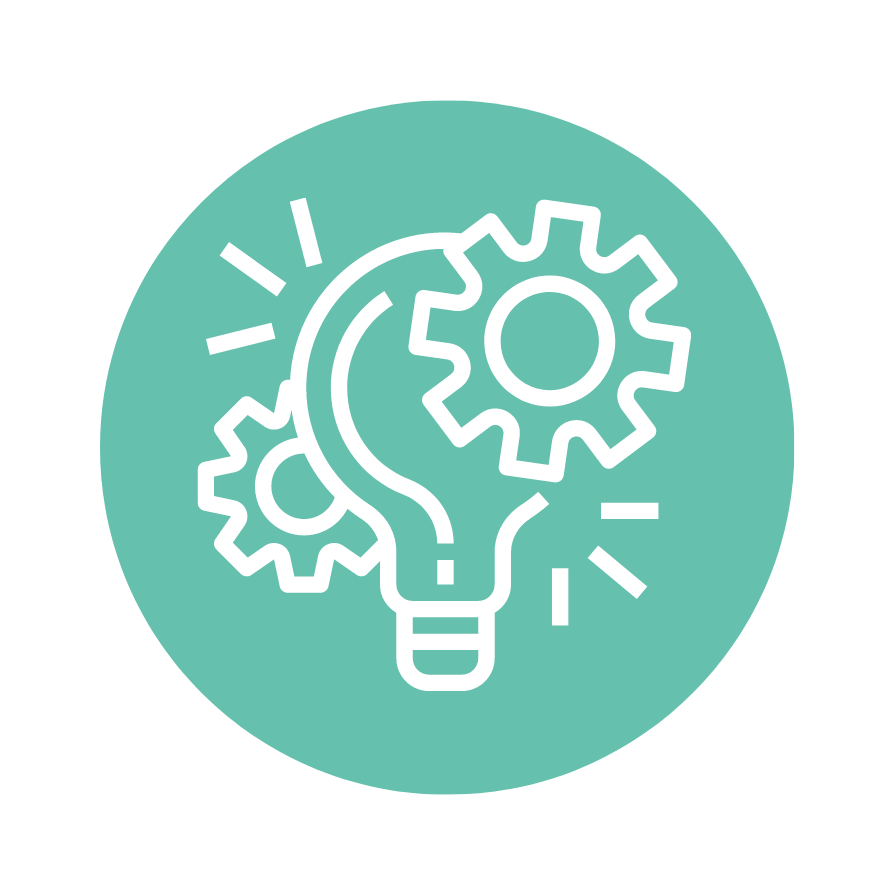Data Science
Tailored Solutions to your Business Needs
- Helping clients through value-added research
- Use data and data analytics projects to provide insights through off-site consulting, on-site internships, and employment pipelines
- 13-week projects done on a tri-annaul basis: starting January, April, and September
- Reach out now to ensure your project can be completed
- Please contact us to learn more or to discuss a potential project

Choose a Project
With a wide range of possibilities, your scope of work sets the parameters for the project.

Work with Students
Students from BYU-Idaho work on your projects from class on campus.

Enjoy Low Costs
Get work done at a reasonable price based on the level of service you choose.
RBDC projects will help you…
Save time -
By selecting a RBDC product that meets your needs, our project team will deliver results without a large investment of your time.
Focus on the outcome -
Each product type has been selected and developed to fit within the 13-week timeframe and to facilitate consistent and valuable outcomes.
Make a difference, locally and around the globe -
Regardless of location, you will be helping students get meaningful work experience.
Boost productivity -
Our guided student teams will work on carefully outlined projects, allowing you to stay focused on your primary responsibilities.
Expand potential hiring pool -
Find possible candidates for internships and full-time positions from talented Brigham Young University–Idaho and Ensign College students.
Project Options
Exploratory Project
Analytic Majors Have the Opportunity to Work with Real-World Data in a Learning Environment and Present Insights to Companies
4-8 Volunteer Students per Team
2 Hours per Week per Student
Student Project Manager with Previous Experience
Specialized Project
Features a Competitively Selected Senior Student with Specialized Data Science Skills to Deliver Objectives and Meet Timeframe Requirements
1 Student
10 Hours per Week
Faculty Mentored Support
Competitive Selection of Students
Advanced Projects
Upperclassmen with Extensive Training in Data Science and Statistics Will Apply the Skills They Have Learned to Solve Real-World Problems
4-6 Students
10 Hours per Week per Student
Paid Technical Project Manager
Faculty Support
Data Science Services:
Data Analysis
Dashboarding
Machine Learning
Predictive Modeling
Spatial Data Analysis
Web Scraping
Natural Language Processing
Report Automation
Building R Packages
Want to read more about past projects?
Natural Language Processing (NLP)
Our teams use NLP to analyze different aspects of human language, including syntax, semantics, pragmatics, and morphology. By transforming this knowledge into rule-based, machine-learning algorithms, we can help you solve specific problems and perform desired tasks with accuracy and efficiency.
Examples:
- Wilford Woodruff Papers Foundation: Our team used our own Regex technique to match topics based on journal text. We created a dashboard of project details and a story map of an important time in his life using Streamlit. Previous teams have applied sentiment analysis to Wilford Woodruff’s journals throughout his life, correlating them to different locations and people he wrote about, among other topics.
Sentiment Analysis
Our teams can help you analyze digital text to determine if the emotional tone of the message is positive, negative, or neutral. With large volumes of text data like emails, customer support chat transcripts, social media comments, and reviews, we can help you confidently make sense of and respond to your customers’ feedback.
Examples:
- Wilford Woodruff Papers Foundation: Our team used our own Regex technique to match topics based on journal text. We created a dashboard of project details and a story map of an important time in his life using Streamlit. Previous teams have applied sentiment analysis to Wilford Woodruff’s journals throughout his life, correlating them to different locations and people he wrote about, among other topics.
Machine Learning
We use machine learning to automate analytical model building. It is a branch of artificial intelligence based on the idea that systems can learn from data, identify patterns and make decisions with minimal human intervention. Our team can help you make better decisions based on data insights, allowing you to stay ahead of the curve.
Examples:
- MOCA Systems: Our team created an economic model that predicts inflation rates in construction projects. The project included identifying economic drivers, building a web scraping algorithm to automate the data collection process, and creating a machine learning model that predicted inflation rates for the client’s areas of interest. The final product was a Streamlit dashboard.
Predictive Modeling
Our student teams are trained to use this statistical technique to predict future behavior. Predictive modeling solutions are a form of data-mining technology that analyzes historical and current data and generates a model to help predict future outcomes. We can help you predict store placement, inflation, or any other needs you may have, giving you a more accurate picture of what’s to come.
Examples:
- MOCA Systems: Our team created an economic model that predicts inflation rates in construction projects. The project included identifying economic drivers, building a web scraping algorithm to automate the data collection process, and creating a machine learning model that predicted inflation rates for the client’s areas of interest. The final product was a Streamlit dashboard.
- Good2Go: In previous semesters, student consulting teams have worked with Good2Go to develop store placement models, forecasting models to predict sales for the next quarter, analyze and report on each of the Good2Go store locations’ quality based on customer feedback, and develop dashboards that displayed optimal locations for new Good2Go stores.
Spatial Data Analysis
Our teams can help you study entities by examining, assessing, evaluating, and modeling spatial data features such as locations, attributes, and their relationships that reveal data’s geometric or geographic properties.
Examples:
- Good2Go: In previous semesters, student consulting teams have worked with Good2Go to develop store placement models, forecasting models to predict sales for the next quarter, analyze and report on each of the Good2Go store locations’ quality based on customer feedback, and develop dashboards that displayed optimal locations for new Good2Go stores.
Web Scraping
Our teams can extract content and data from a website using bots. Web scraping extracts underlying HTML code and, with it, data stored in a database. The scraper can then replicate entire website content elsewhere, allowing you to easily access the information you need.
Examples:
- Imagine Learning: The student teams found, scrapped, and processed data from over 2000 US school district websites to help the client understand the performance and contact information of the school districts. The R programming language was used for web scraping and data manipulation.
- Agricultural Economics Department: Our teams worked with the Agricultural Economics Department at BYU-I to build an automated dashboard for students to use in their classes. The dashboard automatically pulls commodity data from both cash and futures market reports, creating a basis table. The data is scraped on a weekly basis to match the frequency with which the website is updated.
-
Dashboarding
We provide a fundamental means of displaying key business information to measure progress against goals, for any aspect of any organization or business, all in a highly visual manner. We offer dashboards with different tools such as Power BI, Shiny apps, Streamlit, Quarto, and Tableu, giving you the flexibility to choose the best option.
Examples:
- Idaho Falls School District: This semester, the student consulting team has connected to the Idaho Falls School District data and is working on designing reports through Power BI to create dashboards. Data covers student performance, enrollment and attendance, human resources, management and maintenance overview.
- Idaho Steel: Students developed sales and HR employee management dashboards using PowerBI and Shiny. BYU-I provided the client with detailed SQL statements to pull and format data for use in dashboards. Final PowerBI dashboards were then internalized into company use with a BYU-I intern the following semester.


Report Automation
We provide report automation services to have business reports automatically updated and delivered through platforms on a specified schedule. It includes data being automatically extracted, visualizations being automatically updated, and reports being automatically shared without anyone having to manually do this work every time. It delivers business insights to users and top management without extra labor, allowing you to focus on more important tasks.
Examples:
- iWorQ: Our student teams worked with iWorQ, a leading provider of software solutions to local government agencies, to develop a dashboard. The team automated the reporting process to reflect changes in usage patterns and cancellations in real-time. The project’s deliverables included a functional dashboard, along with documentation outlining how to use and maintain it.
Data Analysis
Our team can systematically apply statistical and/or logical techniques to describe and illustrate, condense and recap, and evaluate data. We can help you make sense of performance, survey, spatial, financial, sales data, and more, ensuring that you have the information you need to make informed decisions.
Examples:
- Westmark Credit Union: Students supported the analytics team in evaluating customer retention, transition among clients’ credit offerings, credit card profitability, and customer demographics. The R programming language was used to develop final reports with guidance on preferred credit offerings among those evaluated.
- PW Communications: Our teams have assisted in testing data science tools and using these tools to simplify reporting. Previous student consulting teams have worked on developing Trelliscope functions and dashboards.
Building R Packages
Our team can help you build R packages to help you solve your specific needs.
Examples:
- Stotz Equipment: Our teams have worked with Stotz to create a tool to help farmers predict harvest time. The projects have focused on creating an R package and script that will pull weather data for the fields of interest, and compute growing degree hours for those fields.
Frequently Asked
What if I don't know what type of project I need?
Give us a call anyways! We’d be happy to learn about your business and what your needs are.
How do you manage our data?
Our teams sign non-disclosure agreements to protect your confidential information. Your data is stored securely and is only accessible to members of our team who require access to perform their duties. We prioritize privacy and security and will work with you to ensure that you feel comfortable with how your data is being managed. We offer the option of using a dedicated SFTP server for transferring confidential data between RBDC and our clients. SFTP ensures encrypted transmission of files, protecting data during transit. We have also established procedures for encrypting data and storing it on the cloud, rather than locally.
Who gets paid in the team?
We hire a technical project manager who has experience in the area and leads the team. The project manager reports to us and to the client on a weekly basis. The students on the team volunteer their time and do not receive payment.
What is the skill level of the students in the consulting teams?
Students in the consulting teams are upperclassmen with extensive training in data science and statistics.
What does my participation in the project look like?
As a client, you will have 3+ meetings with your student team starting the first or second week of the semester. A midpoint and final meeting will be scheduled. You’ll direct your team on what needs to be accomplished and respond with feedback.
How involved do I need to be?
You can be as involved as you want, but we recommend meeting with the team at least 3 times during the semester. Weekly or bi-weekly meetings may also be helpful depending on your availability, but are not a requirement.
What programs/software do you use?
Our students are trained in Python, R, Power BI, Tableau, and SQL but we are not limited to these programs. Depending on the needs of your company, we are open to use other programming languages and software to ensure the most effective solution for your project.
How much are faculty involved in doing work?
Exploratory projects do not have faculty support. In specialized projects, faculty members meet with the team every two weeks. In advanced projects, faculty members are more involved and provide weekly support.